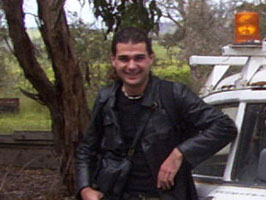 |
| Fred E Nathanson 1913-2006 |
 |
2013
WINNER: PROFESSOR MARCO MARTORELLA
|
Prof. Martorella was recognized for his “Contributions to Adaptive Radar Signal Processing and Waveform Diversity.” He is a member of the IET Radar Sonar and Navigation Editorial Board, a senior member of the IEEE and a member of AFCEA. He is also Chair of the NATO SET-196 on “Multichannel/ Multistatic radar imaging of non-cooperative targets.” His research interests are mainly in the field of radar imaging, including passive, multichannel, multistatic and polarimetric radar imaging.
IEEE Xplore - Search Results for Marco Martorella show 78 papers with him as named author between 2000 and 2014, including;

2014 AWARD WINNER: PROFESSOR YONINA ELDAR

Prof. Eldar was recognized for her “Contributions to Sub-Nyquist Sampling Theory with Application to Radar and Array Processing.” Professor Yonina Eldar received her BS degree in Physics in 1995 and a BS in Electrical Engineering in 1996, both from the Tel-Aviv University, Tel-Aviv, Israel. In 2002 she earned her Ph.D. from MIT in Cambridge, Massachusetts. After graduating she remained at MIT as a Postdoctoral Fellow in the Digital Signal Processing Group. She is currently a Professor in the Department of Electrical Engineering at the Technion-IsrealInstitute of Technology in Haifa, where she holds the Edwards Chair in Engineering. She is a Research Affiliate with the Research Laboratory of Electronics at MIT and a Visiting Professor at Stanford University, Stanford, California. Her research interests are in the broad areas of statistical signal processing, sampling theory and compressed sensing, optimization methods, and their applications to biology and optics.
Yonina Eldar - CV
xx
IEEE Xplore - Eldar, Y.C. Search Results show 198 papers with her named as an author between 2000 and 2012,.
About Fred E Nathanson and the Award
From Fred E Nathanson, J Patrick Reilly, Marvin N. Cohen, "Radar Design Principles - Signal Processing and the Environment", 2nd Edition, Scitech Publishing, Inc., Mendham, NJ, 1991.
A specialist in radar search
techniques, radar systems, radar signal processing, and electro-optical devices,
Fred E. Nathanson has supervised laboratory and prototype search and radar development
and served with numerous evaluation and advisory groups. He is currently [1991] Principal
Research Engineer with Georgia Tech Research Institute in Rockville, Maryland.
Mr. Nathanson holds a B.E. in Electrical Engineering from John Hopkins University,
and an M.S. from Columbia. A Fellow of the IEEE “for contributions to radar systems”
and a member of the Radar Systems Panel, he has published many technical
articles and taught intensive short courses worldwide.
IEEE Xplore Full-Text PDF:
AES Awards | Aerospace & Electronic Systems Society
This award is in honor of the late Fred Nathanson, and is sponsored by the IEEE Radar Systems Panel of the Aerospace and Electronic Systems Society. The purpose of this award is to grant international recognition for outstanding contributions to the radar art by IEEE/AESS members. The goals of the Radar Systems Panel in granting this award are to encourage individual effort and to foster increased participation by developing radar engineers. Established to grant recognition for outstanding contributions to the radar art, this award, consisting of a plaque and honorarium, is to recognize a member of AESS who has not exceeded the age of 40 in the year nominated. Nominees must be a member (in any grade) of IEEE/AESS and must have made outstanding contributions to the radar art; nominations must permit appraisal of the contributions.
No comments:
Post a Comment